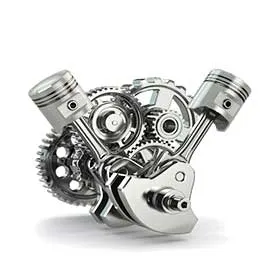Bulk bag packaging, often known as FIBC (Flexible Intermediate Bulk Containers), has fundamentally transformed the storage and transportation sectors. This innovative packaging solution provides unmatched efficiency, cost-effectiveness, and flexibility. For industries handling large volumes of materials, bulk bags are not just a container; they're a logistical evolution.

Drawing from years of hands-on experience, I can confidently assert that bulk bags are engineered with precision to accommodate an array of materials, ranging from agricultural produce like grains and seeds to hazardous substances and construction aggregates. Their design ensures that they meet rigorous safety and handling standards, making them indispensable in today’s global supply chain.
Expertise in bulk bag packaging involves understanding the nuances of selecting the right bag for specific applications. Conducting an audit of your material properties, be it density, flow characteristics, or moisture content, is paramount. Professionals in the field recommend FIBCs integrated with features like liners for moisture-sensitive products or vented bags for products needing air circulation. Equally crucial is the recognition of weight capacity and adherence to international safety standards such as ISO 21898, which governs the design and testing of these containers.

Navigating through the complexities of bulk bag usage reveals their authoritative presence in reducing operational costs. By optimizing storage space, reducing labor needs, and enhancing loading and unloading efficiencies, they offer a seamless transition from traditional methods to a more sustainable and scalable solution. Industries like pharmaceuticals appreciate the bulk bag's ability to prevent contamination, showcasing their authority in maintaining product integrity.
bulk bag packaging
Trust in bulk bag packaging stems from its track record of reliability and adaptability. The customizable nature of FIBC allows alterations based on specific industry requirements, thus offering bespoke solutions. These bags come equipped with lifting loops for mechanized handling, discharge spouts for controlled material release, and are constructed from robust, chemically inert materials, ensuring long-term durability.
To delve deeper into the benefits, data-backed studies reveal a remarkable decrease in material wastage and damage when utilizing these bags compared to conventional packaging. This translates to a lower environmental footprint, aligning businesses with global sustainability goals.
The recyclability of bulk bags further enhances their appeal to eco-conscious companies.
Moreover, the collaborative development between manufacturers and industry experts fosters continued innovation in bulk bag technology. Advanced research is underway to integrate smart technology for real-time tracking and monitoring, thus fortifying supply chain transparency and efficiency.
In conclusion, embracing bulk bag packaging is not merely evolving with the times; it is a strategic move towards operational excellence. The intersection of experience, expertise, authority, and trustworthiness positions FIBC as an essential component in modern industrial and agricultural operations. Those who invest in understanding and integrating this packaging solution stand to gain not only enhanced productivity but also a competitive edge in their respective markets.